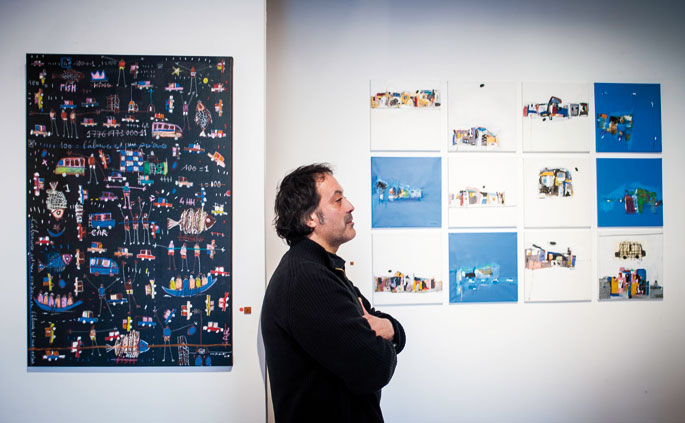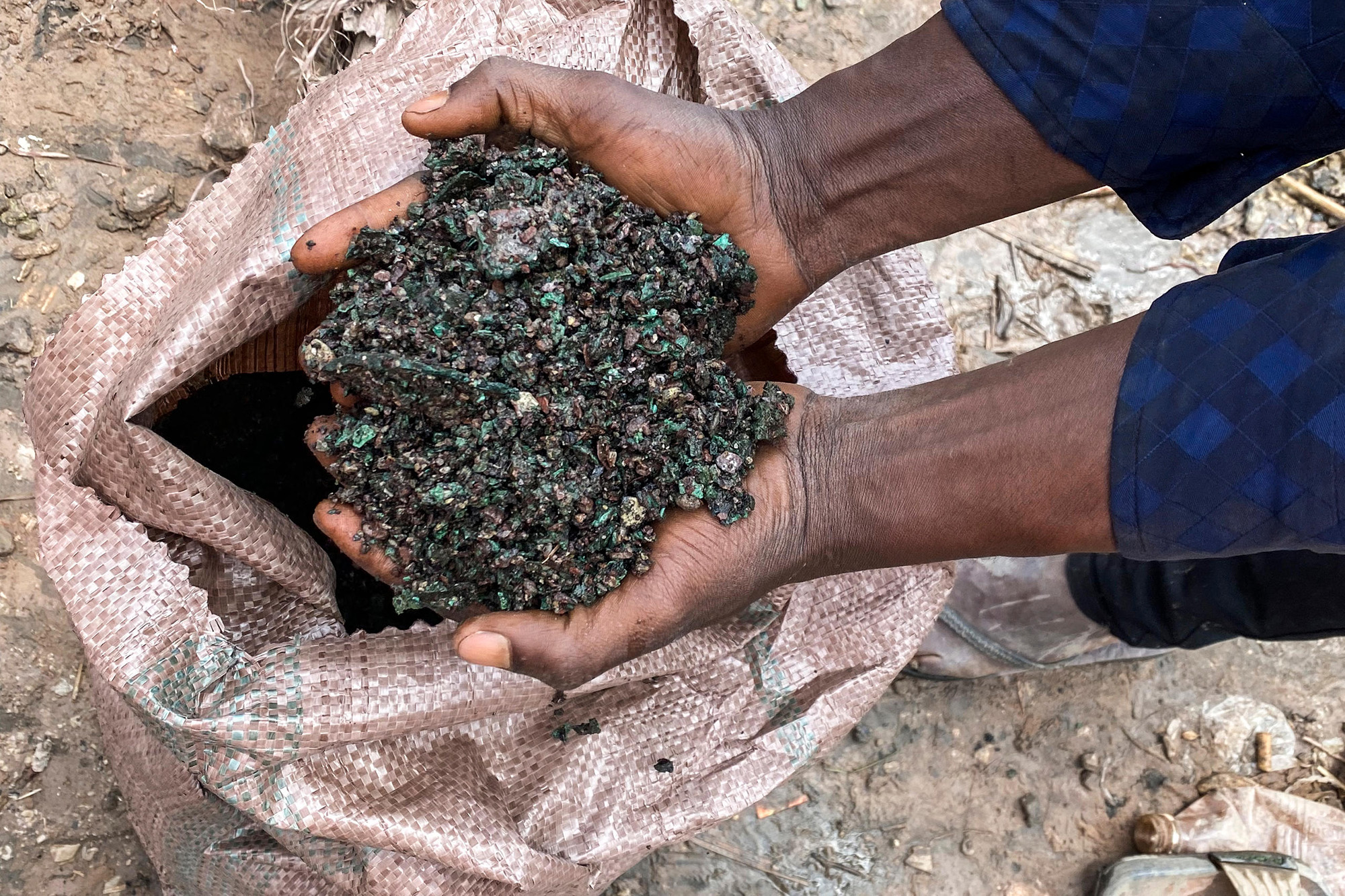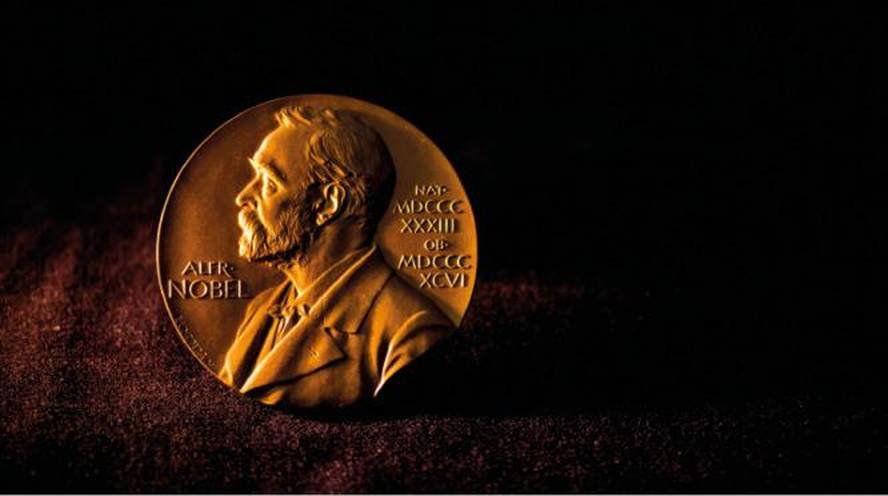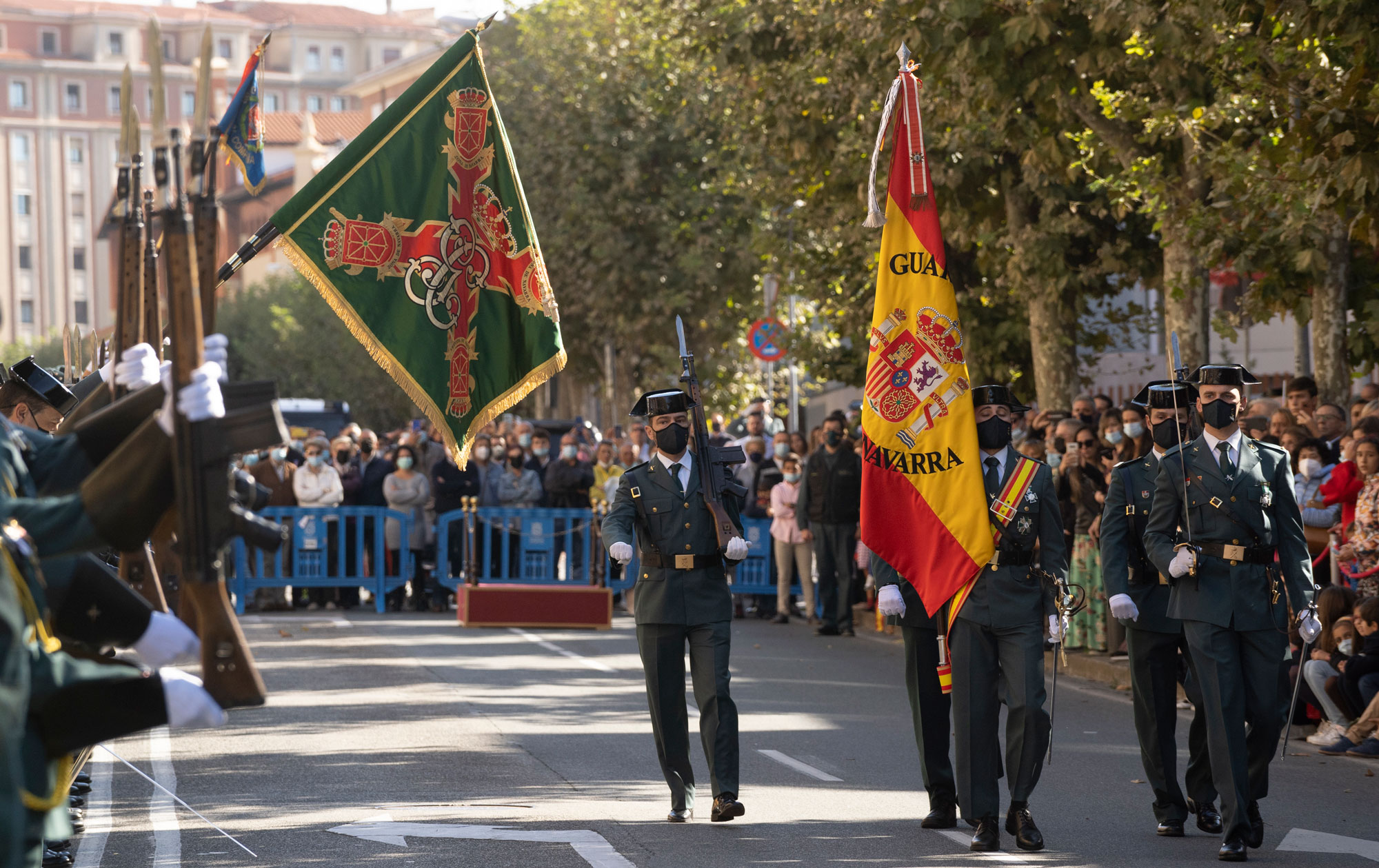"Today colonialism is much more suffocating in Africa"
- The blues music led Jesús Ahedo to Africa and the fascination with the art there known led him to the creation of the Kalao gallery in Bilbao. The only room in the Basque Country specialising in contemporary African art has recently reached ten years. Ahedo denounces that African art is undervalued when it has occasion. However, “thanks” for this contempt, we can see leading artists from the continent, whose works are much more affordable.

How did your concern for African art come about?
The concern for art began with my bachelor’s degree in education sciences in 1992, which is the ultimate expression that human beings leave in the world. I was playing in a blues group, and in 2004, I traveled to Mali looking for the blues fountains. It was an early journey, going through four months in four countries, and I made great friends who have influenced the current echo of the gallery.
In these ten years you have brought to this small gallery artists of the height of the tallest.
Ndary Lo, George Llilanga, Cheri Cherin, Camara Guèye… They are great artists, but they have appreciated my humble proposal. They normally think that there will be a lot of interest in Bilbao, but then they lament the real situation.
African art is therefore undervalued, even at those levels.
Yes, it has a ridiculous presence in international art meetings. That is gradually changing, but “First Level Art” is now controlled by financial powers, where artistic or aesthetic criteria are not governed. Art is the best way to launder money.
How do we look at Africa from here?
It has always been seen from Europe with the view of colonialism. From the Berlin conference, it became an official colonialism of almost a hundred years in Africa. The European colonialist system said that it had a civilizing mission. France was interested in this system, which is why Africa has a great presence in French cities. Spain, on the other hand, went from considering Guinea and the Sahara as provinces to running away. Manuel Iradier achieved Equatorial Guinea for Spain, but he never showed much interest in Africa, beyond looting.
But it's a vision of yesteryear.
So far, only Belgium has recognised that genocide has taken place in Africa. It has been officially recognized that King Leopold deceived the Belgians and the massacre he did through his mercenary Stanley.
We Basques are not clean either.
The issue has been hidden, the role of the Basque ports in the slave trade should be investigated. Spain was the last slave country in Europe and Cuba was the last in America. That is why the family Castaño Capetillo de Sopuerta brought Rafael Padilla Chocolat in 1877, when he was eight years old buying a slave in Cuba. It's a curious story of Chocolat: The English Tony Grice met him in Bilbao and took him to London and then to Paris. Montmartre had a great success in forming a couple with the Fottit clown. They appeared in several films by the Lumière brothers, but then Chocolat's fame went off.
More than art, it's said to be craft.
If society does not know what Africa is, if it does not know its history and its socio-political vicissitudes, if there is no reference to education ... It is, of course, a consequence of that conception. Exoticism is another harmful viewpoint. In the movies about Africa there is always an exotic, beautiful, folkloric place... There is a paternalistic view, the image that Africans are not able to act for themselves, they are immature, they are violent… and you always have to go to solve their problems. This idea, which was once used by colonization, is currently used to support post-colonization.
Does colonial presence continue?
Today, domination has acquired an African aspect: the alleged rulers are Africans, but in all countries the government represents a puppet of multinationals. Today colonialism is much more suffocating, Africans cannot manage their own resources.
Does cooperation solve something?
They're jokes, I'm not going to judge, I know that there are NGOs that give everything, doctors, etc., but there are others that are not a model of human work, because of the way of life and attitude they lead.
So how should we help?
Promoting culture is working on self-esteem in Africa. After three centuries of suffering, Europeans kidnapped the best people in Africa and took them to America. We cannot think that in the few years that have passed since independence they will develop at our level, as many have lost their identity.
What a black future, then?
I'm optimistic, I think in Africa over the next 40 or 60 years, there are going to be some milestones of humanity, there's a lot of strength there. However, we are not going to have equal relations as long as we do not ask for forgiveness from Africa and we start to respect each other.
The negative meaning of the word “black”...
Yes, but the unknown black story is hidden. For example, there is a theory that all the clubs in flamenco come from black Africa, from Antonio and David Hurtado. According to them, they are words samba, conga, tango... yoruba. On the other hand, it is estimated that about 10% of the Spanish population was under the Sahara around 1100. At that time, for example, the brotherhood Los Negritos de Sevilla was founded, whose members were black.
“Bilboko Arbolantxa kalean daukat Kalao arte galeria, Albia inguruan, atzeko aldean tailerrak daude. Artearekiko maitasunagatik ari naiz; galeriak ez du dirurik ematen, eta asteburuetan tabernari nabil Kubil tabernan, Iturribide kalean. Kale heavy eta kalimotxero horretan jazza entzun, formatu txikiko zuzenekoak ikusi eta arte afrikarra ikus dezakegun taberna bakarra da Kubil”.
I just saw a series from another sad detective. All the plots take place on a remote island in Scotland. You know how these fictions work: many dead, ordinary people but not so many, and the dark green landscape. This time it reminded me of a trip I made to the Scottish... [+]
In 2017, Indonesia and the Netherlands signed an agreement to return the heritage stolen by the European country because of colonialism for three centuries. The Indonesian responsible for the return process, Gusti Agung Wesaka Puja, explained that this agreement "was important in... [+]
The Centre Tricontinental has described the historical resistance of the Congolese in the dossier The Congolese Fight for Their Own Wealth (the Congolese people struggle for their wealth) (July 2024, No. 77). During the colonialism, the panic among the peasants by the Force... [+]
New York, 1960. At a UN meeting, Nigeria’s Foreign Minister and UN ambassador Jaja Wachucu slept. Nigeria had just achieved independence on 1 October. Therefore, Wachuku became the first UN representative in Nigeria and had just taken office.
In contradiction to the... [+]
Washington (EE.UU. ), 1807. The US Constitution banned transatlantic slave trade. This does not mean that slavery has been abolished, but that the main source of the slaves has been interrupted. Thus, slave women became the only way to “produce” new slaves.
So in 1845, in... [+]
It is no coincidence that Columbus Day, that of the Civil Guard and the Virgen del Pilar coincided on that date. The three represent oppressive structures (statue, army and church). On the other hand, there is indigenous resistance and population that the Spanish State... [+]
























